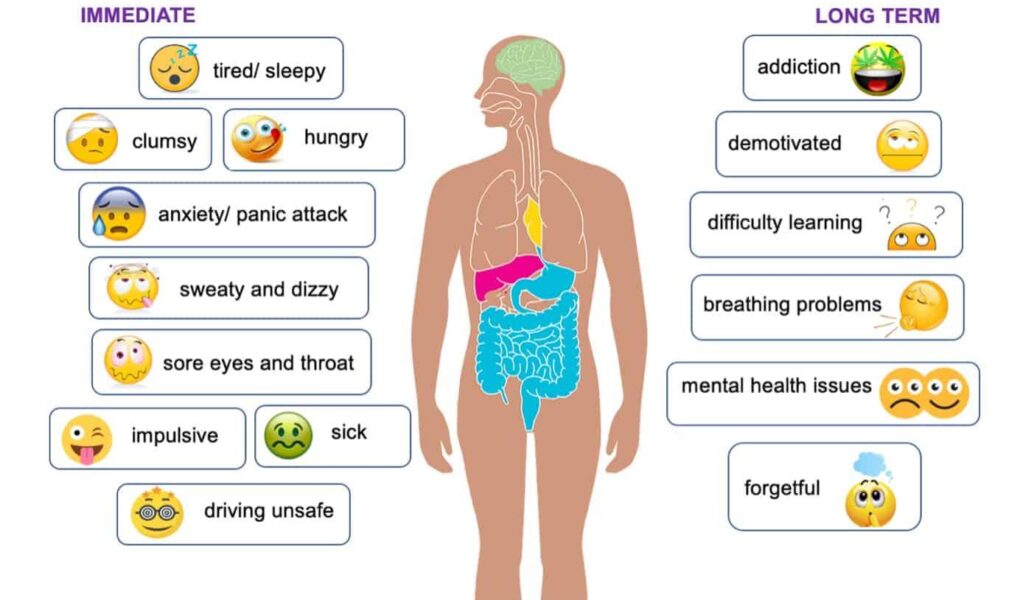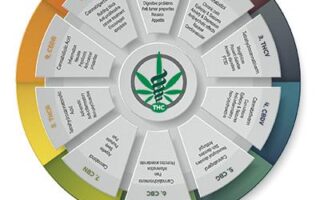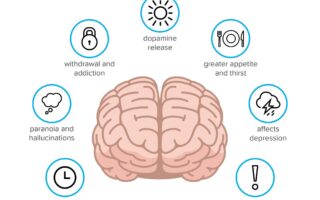In the ever-evolving landscape of medicinal and recreational substances, cannabis stands out as one of the most intriguing and controversial. Once relegated to the shadows of stigma and prohibition, it has emerged into the limelight, embraced by many for its potential therapeutic benefits and recreational joys. Yet, as its popularity blossoms, so too do the questions surrounding its long-term effects. What happens when the ephemeral pleasure of a single puff becomes a daily ritual? How does the body, and more importantly the mind, respond to the consistent presence of cannabinoids over months and years? This article seeks to delve into the nuanced realm of cannabis consumption, exploring not just the potential benefits but also the complexities and consequences of long-term use. By examining the emerging research and perspectives from experts in the field, we aim to shed light on the multifaceted effects of cannabis, inviting readers to consider the implications of this ancient plant in our modern age.
Table of Contents
- Exploring Cognitive Impact: Memory and Learning in Cannabis Users
- Understanding Mental Health: Cannabis Use and Psychological Well-being
- Physical Health Considerations: Respiratory and Cardiovascular Effects
- Navigating Responsible Use: Guidelines for Long-term Cannabis Consumers
- Q&A
- Final Thoughts
Exploring Cognitive Impact: Memory and Learning in Cannabis Users
The relationship between cannabis use and cognitive functions, particularly memory and learning, has garnered considerable attention in recent years. Research suggests that THC, the psychoactive component of cannabis, can influence both short-term and long-term memory processes, potentially altering the way users encode, store, and retrieve information. Some studies indicate that frequent use might lead to difficulties in concentrating and remembering details, affecting academic and occupational performance. Important aspects to consider include:
- Short-term memory impairments: Users may struggle with recalling recent events or information.
- Long-term learning effects: Regular users could experience challenges in forming new long-term memories.
- Variability in impact: The cognitive effects may vary based on frequency, potency, and age of first use.
In contrast, some findings suggest that cannabis might also have a peculiar benefit for certain types of learning, particularly those involving creativity and divergent thinking. Users often report an enhanced ability to generate novel ideas, possibly linked to altered neural pathways during cannabis use. However, these positive effects warrant cautious consideration given the potential for negative impacts on overall cognitive health. To illustrate these dynamics, consider the following table that contrasts potential benefits and drawbacks:
| Effects | Positive Aspects | Negative Aspects |
|---|---|---|
| Short-term Memory | Possible enhancement under certain conditions | Difficulties in retention and recall |
| Learning and Creativity | Improved idea generation | Challenges in structured learning environments |
| Cognitive Flexibility | Enhanced problem-solving skills | Impaired focus and attention |
Understanding Mental Health: Cannabis Use and Psychological Well-being
As the conversation around mental health continues to evolve, the relationship between cannabis use and psychological well-being has come into sharper focus. While many users report positive effects such as stress relief and anxiety reduction, it is essential to consider the long-term consequences that may accompany regular consumption. Research suggests that prolonged cannabis use can lead to a multitude of psychological changes, which can include:
- Increased Anxiety: For some individuals, regular cannabis use may heighten feelings of paranoia or anxiety over time.
- Dependency Issues: Emotional dependence on cannabis can develop, leading to a cycle where users rely on the substance to cope with day-to-day challenges.
- Reduced Motivation: Dubbed “amotivational syndrome,” chronic users might experience a decrease in drive and ambition, which can affect personal and professional aspects of life.
Additionally, understanding the spectrum of mental health impacts requires recognition of both the potential benefits and risks involved. Notably, the effects can vary widely among users depending on factors such as genetic predisposition and existing mental health conditions. A brief comparison of positive and negative long-term effects can be outlined as follows:
| Positive Effects | Negative Effects |
|---|---|
| Improved sleep quality | Increased anxiety levels |
| Reduction in chronic pain | Cognitive impairments |
| Enhanced mood in some | Possible dependency issues |
Physical Health Considerations: Respiratory and Cardiovascular Effects
Long-term cannabis use can significantly impact both respiratory and cardiovascular health. The inhalation of cannabis smoke exposes users to a variety of harmful substances, including tar and other irritants similar to tobacco smoke. These compounds can lead to chronic bronchitis, coughing, and increased phlegm production. Over time, habitual users may experience reduced lung function, which can manifest as shortness of breath and decreased exercise tolerance. This is particularly concerning for individuals who already have pre-existing respiratory conditions. Additionally, while cannabis is often perceived as less harmful than tobacco, the potential long-term effects on lung health cannot be overlooked.
Moreover, the cardiovascular system is also affected by long-term cannabis consumption. When smoked, cannabis can induce temporary increases in heart rate and blood pressure. For individuals with underlying heart conditions, these fluctuations may elevate the risk of severe cardiovascular events. Some studies indicate a correlation between long-term cannabis use and an increased likelihood of experiencing myocardial infarction. Thus, it is critical for users to consider these risks, especially if cannabis is consumed in combination with other substances that may further strain cardiovascular health. Below is a brief overview of potential cardiovascular risks:
| Cardiovascular Effects | Description |
|---|---|
| Increased Heart Rate | Can lead to additional strain on the heart. |
| Elevated Blood Pressure | May pose risks for hypertensive individuals. |
| Risk of Heart Attack | Potentially higher for long-term users, especially with pre-existing conditions. |
Navigating Responsible Use: Guidelines for Long-term Cannabis Consumers
For long-term cannabis consumers, embracing responsible use is essential to mitigate potential risks while enjoying the benefits of cannabis. It’s important to establish a personal framework that emphasizes moderation and mindfulness. Consider the following guidelines to help maintain a balanced approach:
- Know Your Limits: Always be aware of how cannabis affects your body and mind over time. Everyone reacts differently, so keep track of your dosage and its impact on your daily life.
- Stay Informed: Regularly research and keep up with new studies and findings about cannabis, especially concerning its long-term effects.
- Mix It Up: Alternate between different strains and consumption methods to prevent tolerance builds-up and enhance your experience.
- Monitor Mental Health: Be aware of any changes in mood or mental state, and consult a professional if you have concerns.
Creating a supportive environment can also enhance responsible consumption. Engage with community resources, educational workshops, or online forums where experiences and advice can be shared. Additionally, establishing routine check-ins with yourself can be beneficial:
| Frequency | Aspect to Evaluate |
|---|---|
| Weekly | Dosage and effects |
| Monthly | Mood and mental health |
| Quarterly | Knowledge updates |
Q&A
Q&A: Exploring the Long-Term Effects of Cannabis Consumption
Q1: What are the most commonly discussed long-term effects of cannabis?
A1: The long-term effects of cannabis can vary widely among individuals, influenced by factors such as frequency of use, age of first use, and genetic predisposition. Commonly discussed effects include potential cognitive impairments, changes in mental health (such as anxiety or depression), respiratory issues from smoking, and dependency or addiction in certain users. It’s essential to note that research is ongoing, and the effects can differ based on the individual’s use pattern and personal health history.
Q2: How does long-term cannabis use affect cognitive function?
A2: Long-term cannabis use, particularly when started during adolescence, has been linked to alterations in cognitive function. Studies suggest that sustained use can impact attention, memory, and learning capabilities. However, the extent of these effects can vary significantly, and some users may not experience noticeable changes. Further research is needed to understand the mechanisms and potential for recovery upon cessation.
Q3: Can cannabis use lead to mental health issues?
A3: The relationship between cannabis use and mental health is complex. While some studies indicate a correlation between long-term use and conditions like increased anxiety, depression, or psychosis, the causality remains debated. For some individuals, especially those predisposed to mental health issues, cannabis may exacerbate symptoms. Others may use cannabis to self-medicate, which can complicate the understanding of its effects.
Q4: Are there any impacts on physical health due to long-term cannabis use?
A4: Yes, long-term cannabis use can have physical health implications, particularly if smoked. Regular inhalation of combusted material can lead to respiratory issues, including chronic bronchitis. However, alternative consumption methods, such as edibles or vaporizers, may mitigate some of these risks. It remains crucial for users to consider their method of consumption and its potential long-term effects on their health.
Q5: Is cannabis dependence a concern for long-term users?
A5: Cannabis dependence is a possibility for some long-term users, though it’s generally considered less severe than dependence associated with substances like alcohol or opioids. Research indicates that approximately 9% of cannabis users will develop an addiction, with the risk increasing for those who start using at a young age. Recognizing the signs of dependency and approaching use mindfully is key to minimizing risks.
Q6: What should individuals consider before using cannabis long-term?
A6: Prospective long-term users should consider various factors: personal health history, mental health status, the legal implications of use, and the socio-cultural context surrounding cannabis. It’s also wise to consult with healthcare professionals to discuss any potential risks and develop an informed approach tailored to their individual circumstances.
Q7: Is there any ongoing research addressing the long-term effects of cannabis?
A7: Absolutely! Ongoing research is crucial to unpacking the nuanced and evolving understanding of cannabis effects. Studies are examining its impact on various demographic groups, comparing the effects of different consumption methods, and exploring therapeutic potentials. As cannabis becomes more widely accepted and studied, the body of knowledge will continue to grow, helping inform public health guidelines and personal choices.
Conclusion:
The long-term effects of cannabis are multi-faceted and complex, influenced by a myriad of personal and social factors. As interest in cannabis continues to rise, awareness and education about its potential impacts remain essential for informed decision-making. Understanding both the risks and benefits can empower individuals to navigate their cannabis use more effectively.
Final Thoughts
the long-term effects of cannabis remain a complex tapestry woven from individual experiences, scientific inquiry, and societal perspectives. As research continues to unveil the intricacies of this multifaceted plant, it becomes increasingly crucial to approach the subject with an open mind. Whether for medicinal purposes or recreational use, understanding the potential implications—both positive and negative—can empower individuals to make informed choices. As we navigate this evolving landscape, let us remain curious and engaged, fostering a dialogue that prioritizes health, well-being, and the quest for knowledge in the ever-expanding realm of cannabis.



